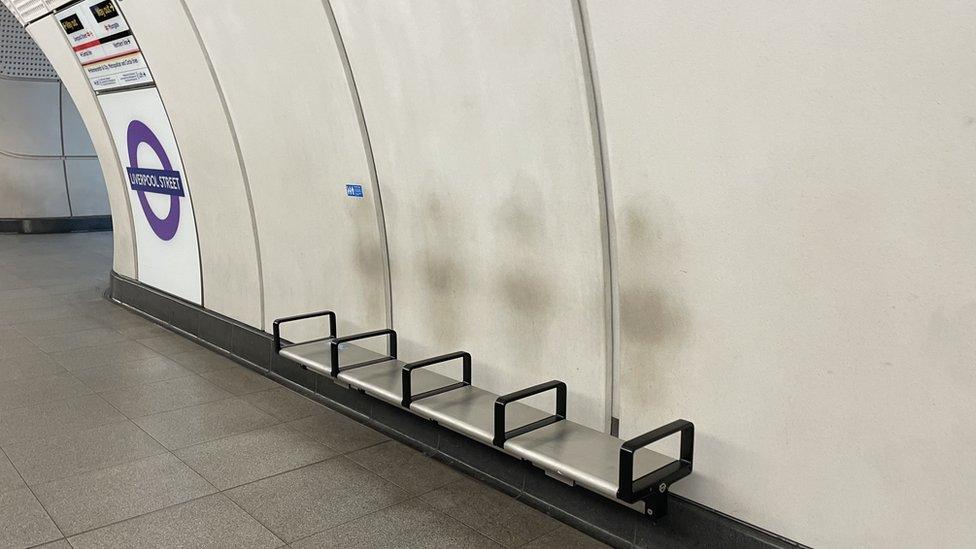Transport for London cracks down on fare dodgers
- Published
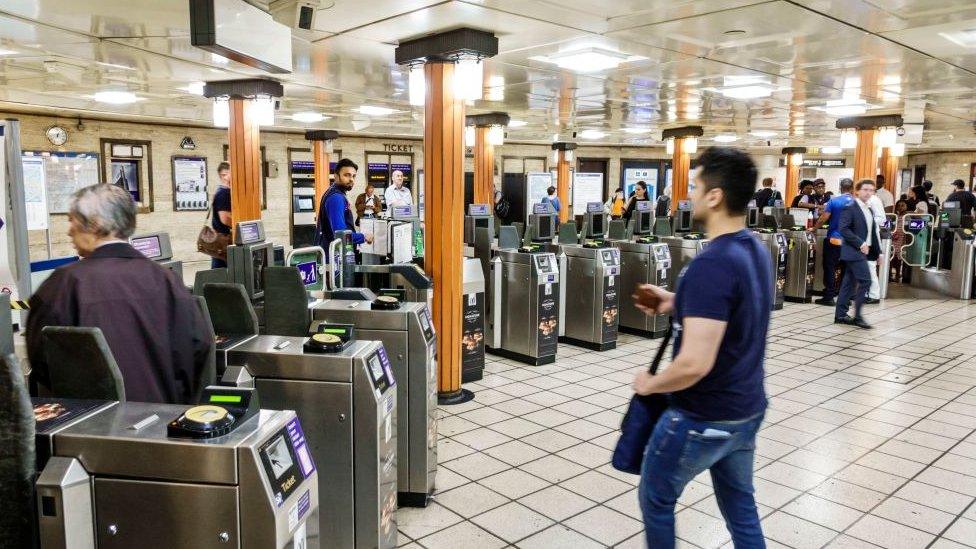
The network has been able to detect more 56% more offenders through new technology
Last year Transport for London (TfL) prosecuted more than 19,500 people for fare evasion, an increase of half compared to 2022.
It investigated 421 people for habitual fare evasion who made more than 50,000 irregular journeys across the Underground network.
The network said the increase was due to better technology to detect prolific offenders.
It comes as TfL announced the penalty fare was being raised from £80 to £100.
Regular offenders
TfL said that it has improved its ability to detect and investigate offenders causing the greatest revenue loss through its irregular travel analysis platform (ITAP).
ITAP detects fare evasion from patterns in ticketing and passenger data, identifying people who avoided paying for all or part of their journey.
It has gathered a register of regular offenders that ITAP has identified for unusual travel patterns who may be prioritised for further investigation and subsequent prosecution, TfL said.
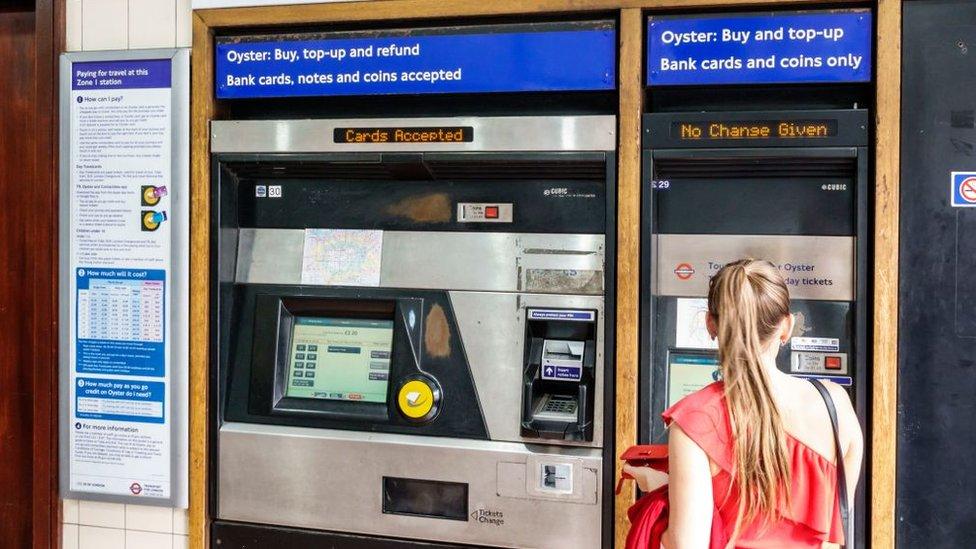
Better technology is credited with detecting fare evaders
TfL also announced on Friday that it was making body-worn video part of its essential kit for employees, and was increasing the penalty fare from £80 to £100 to act as a further deterrent to fare dodging.
It added that disputes over fares were also a precursor to "approximately half" of all reported work-related violence and aggression incidents towards frontline staff.
Siwan Hayward, TfL's director of security, policing and enforcement, said: "The overwhelming majority of our customers pay the correct fare, however a minority do attempt to travel without a valid ticket.
'Consequences'
"Fare evasion is a criminal offence. Fare evasion robs Londoners of vital investment in a safe, frequent and reliable transport.
"Fare evasion impacts our customers and our staff, and can make public transport feel unsafe. Sadly, fare evasion is often a trigger for violence and aggression towards our colleagues.
"We strive to ensure that wherever possible it is fare evaders themselves, not fare or tax payers, who pay the cost.
"As today's data shows, anyone who fare evades will be caught and have to pay the consequences."

Listen to the best of BBC Radio London on Sounds and follow BBC London on Facebook, external, X, external and Instagram, external. Send your story ideas to hello.bbclondon@bbc.co.uk, external
Related topics
- Published7 February 2024
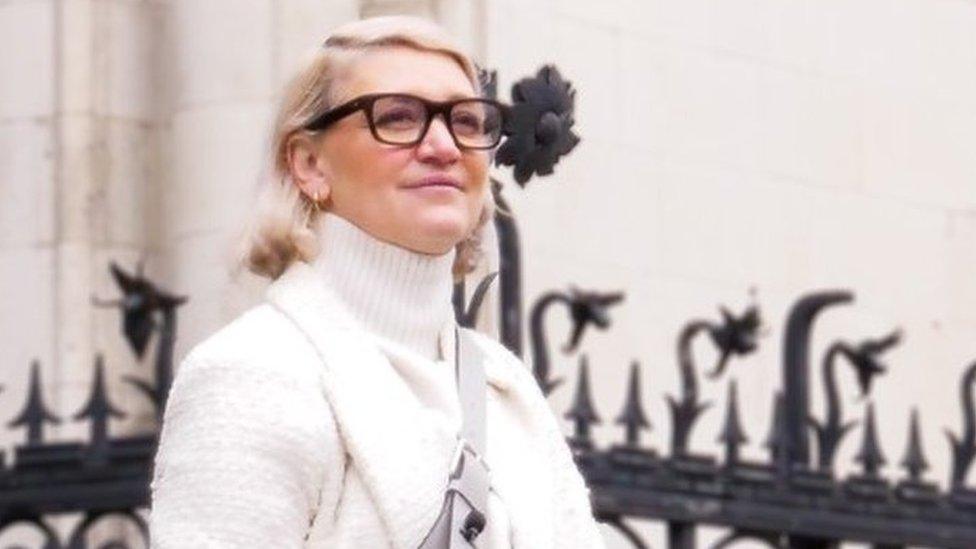
- Published7 February 2024
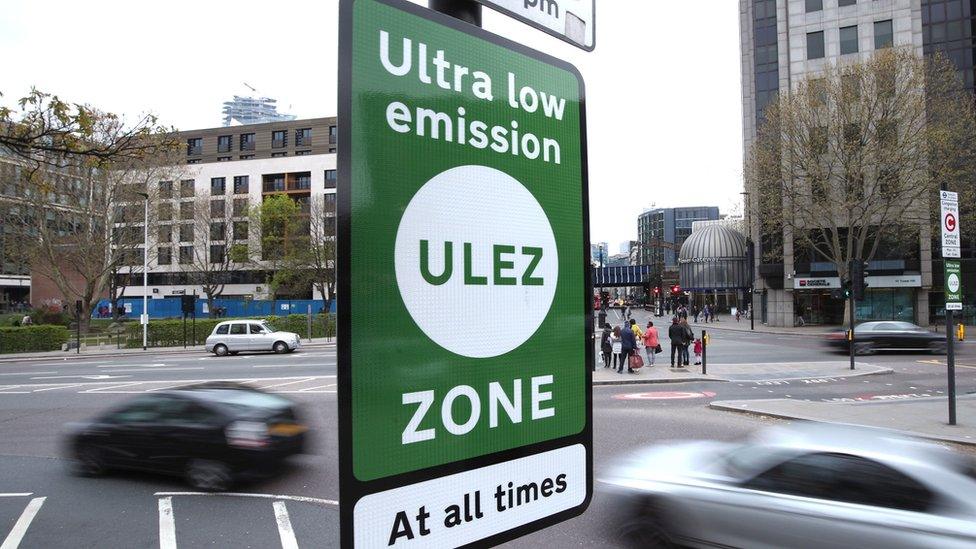
- Published14 January 2024
